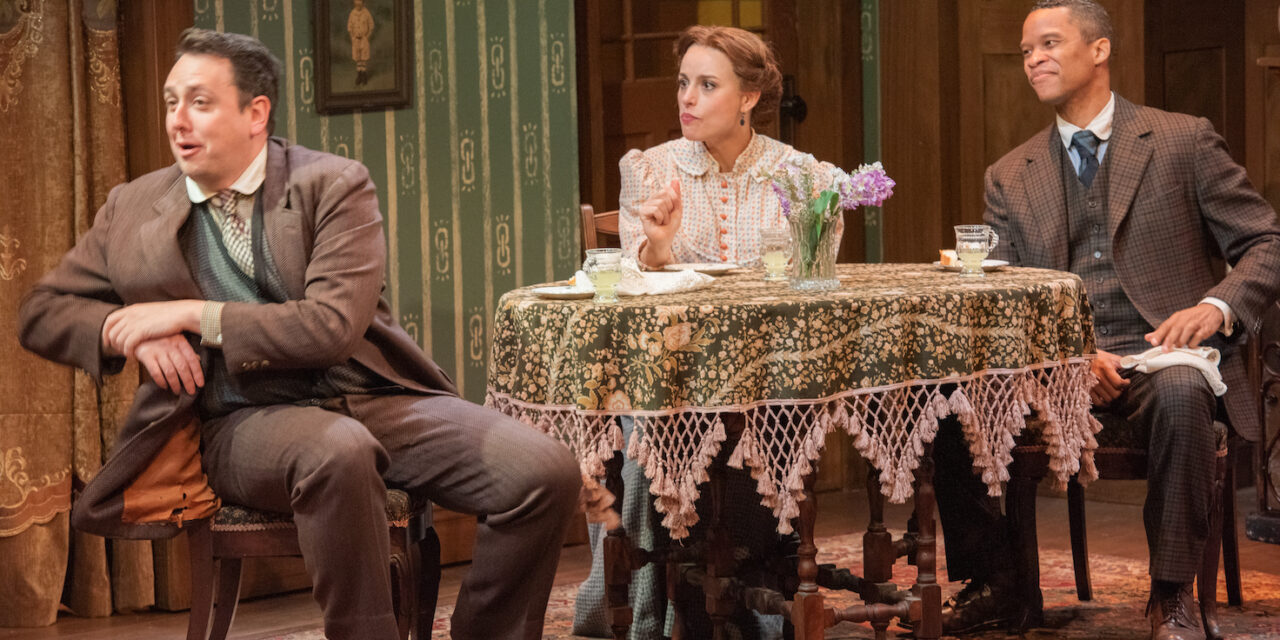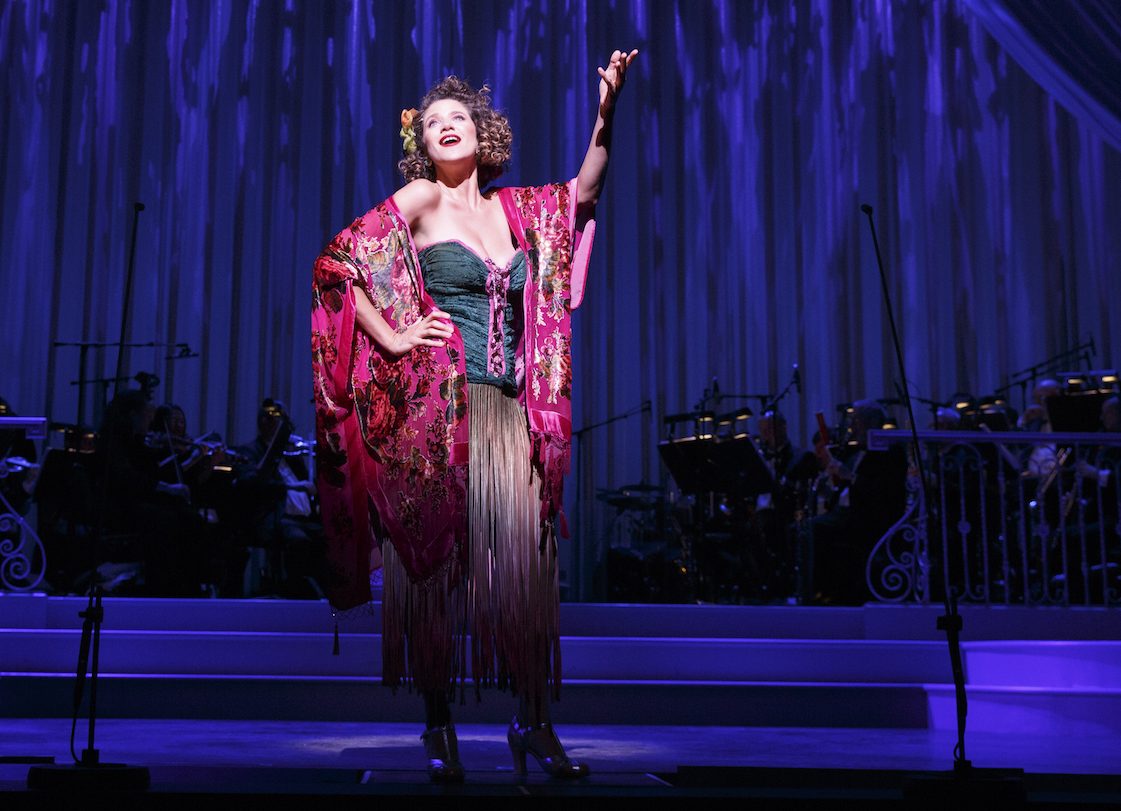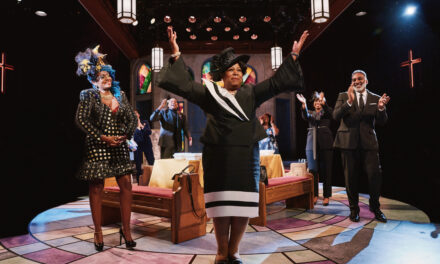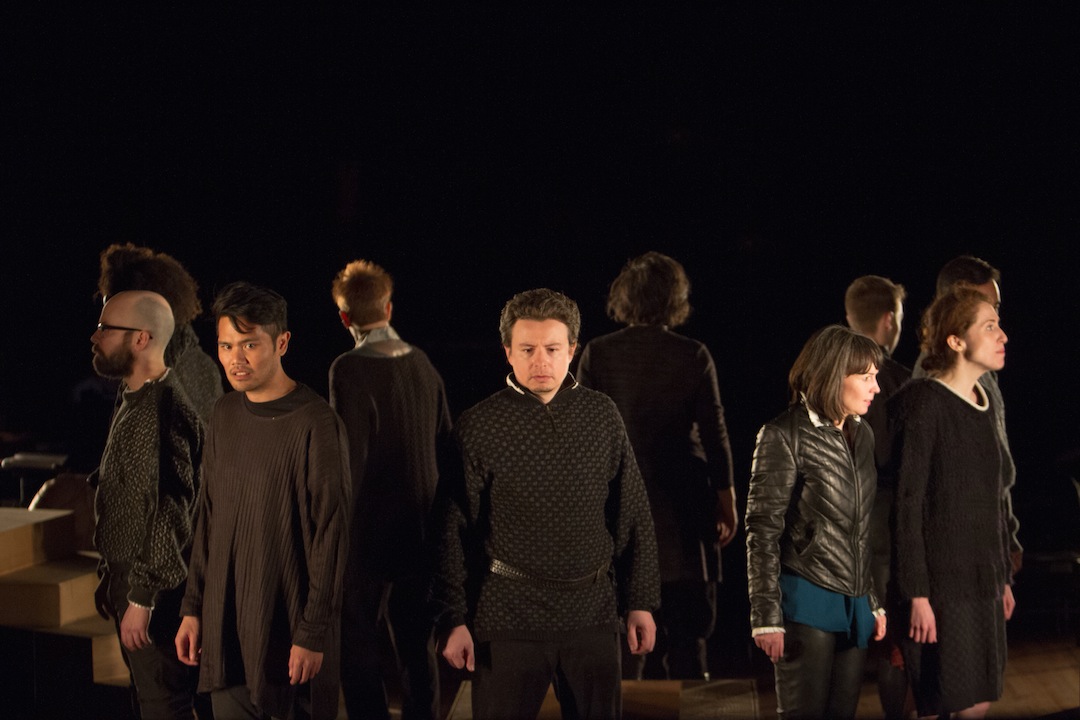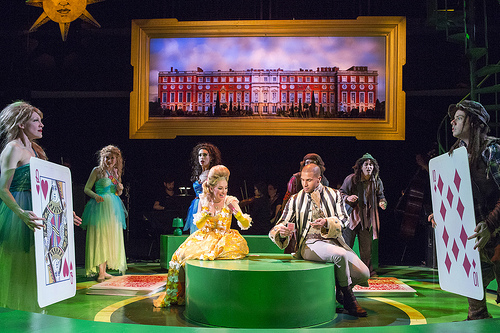By Samuel L. Leiter . . .
Since 1995, the mission of Off-Broadway’s Mint Theater has been to revive worthy but forgotten plays, mainly British and American. Some have proved gems, some interesting but flawed, and others perhaps best left forgotten. One of the worthy English playwrights that artistic director Jonathan Banks has resuscitated from the dustbin of theater history is Elizabeth Baker’s (1876-1962), whose The Price of Thomas Scott, however, I found of limited appeal. More compelling by far is the current revival of Baker’s Chains, which premiered in London 1909, and had a successful run starring Sybil Thorndike and Lewis Casson, two of England’s leading actors.
Like other British dramatists of her time (Shaw, Galsworthy, etc.), Baker’s plays always had something on their mind other than being a way for an audience to spend two or three hours in postprandial pleasure. Unlike most of her contemporaries, she chose to focus on the then infrequently dramatized working classes of clerks and shopgirls. Baker gives the English social and employment situation some hard knocks, but much of what she says readily applies to America today.
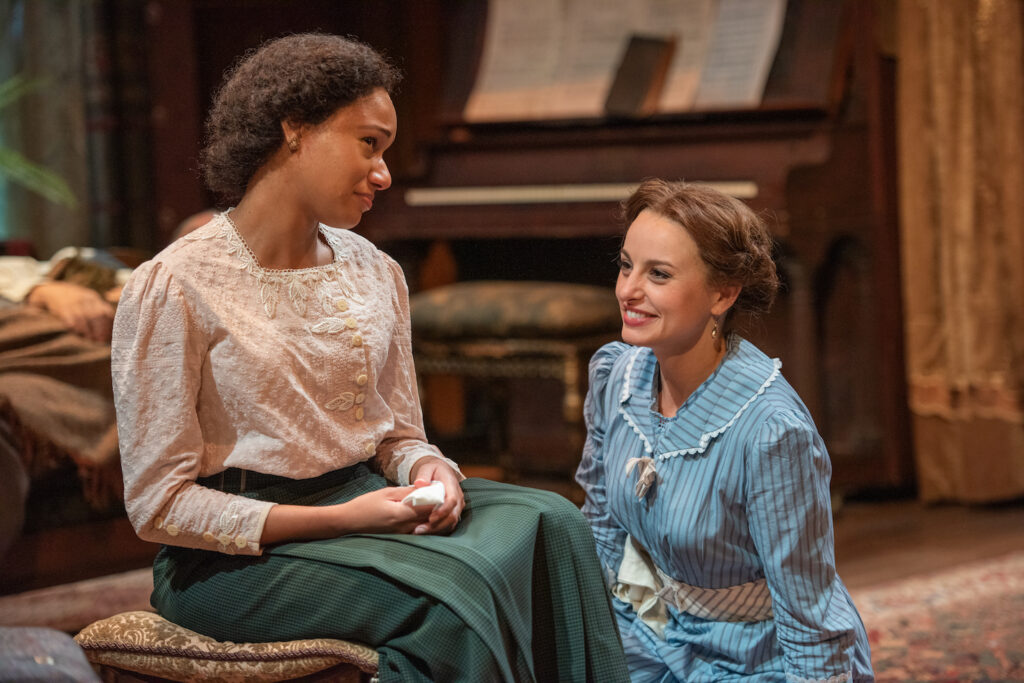
Chains is set in a humble suburban household in Hammersmith, where a young couple, Charley (Jeremy Beck), a clerk, and Lily Wilson (Laakan McHardy), a housewife, supplement Charley’s just-getting-by income by taking in a border. His name is Fred Tennant (Peterson Townsend); like nearly all the men in the play, Fred’s a clerk, depicted as a kind of dead-end, pencil-pusher job subject to long, boring hours at low wages that themselves are subject to cuts when business is slow.
Charley’s only escape from the deadening grind of taking the train, and bending over a desk all day, dressed in the stiff uniform of the faceless masses—frock coat, high collar, and top hat—is tending his tiny, hardscrabble pea patch, where he struggles with poor soil and snails to raise a few sweet peas. Just when he seems destined to be chained to this existence, down to the last syllable of recorded time, Fred announces he’s chucking his steady position and setting off for a new life in Australia (“the Colonies,” in the Edwardian vernacular), where he hopes to buy a piece of land and farm it.
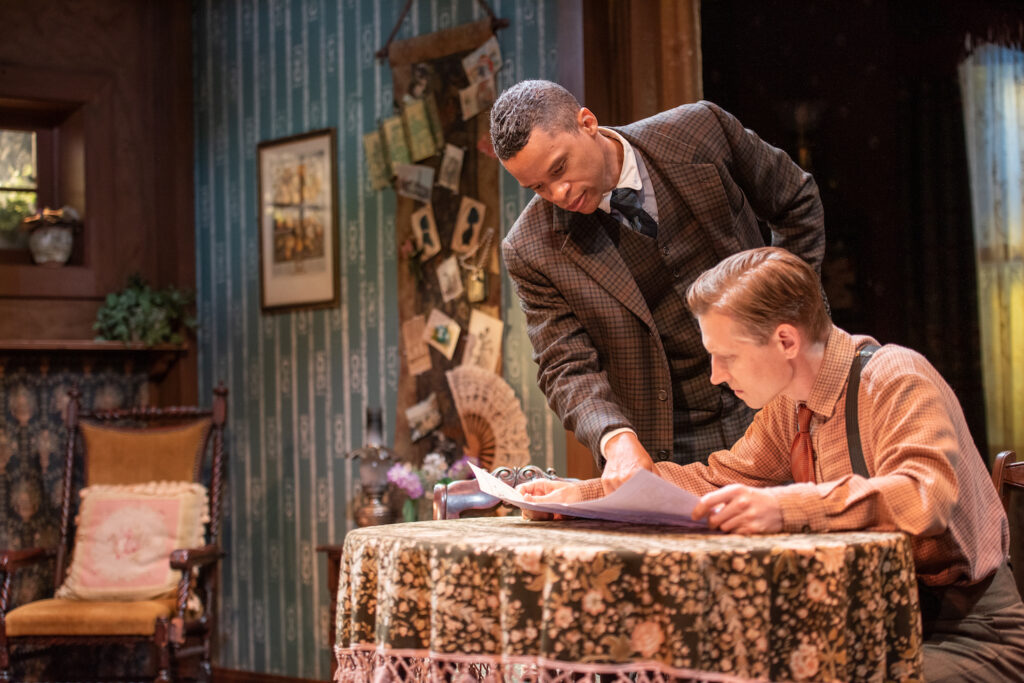
This, as they say in well-made play terminology, is the “inciting incident,” as now everybody has something to talk about. What? Give up a good, steady gig and go off to the other side of the globe where there’s no promise of employment? The jovial next-door neighbor, Morton Leslie (Brian Owen), for example, laughs it all away, wisecracking about how quickly Fred will give it all up and come back to England.
Nearly everybody else also thinks the plan crazy, including Lily’s convention-bound parents, Mr. and Mrs. Massey (Anthony Cochrane and Amelia White), Lily’s brother Percy (Avery Whitted), his girlfriend, Sybil Frost (Claire Saunders), and Walter Foster (Ned Noyes), the well-off older man hoping to marry Lily’s shopgirl sister, Maggie (Olivia Gilliatt). Maggie’s the only one with a mind or her own.
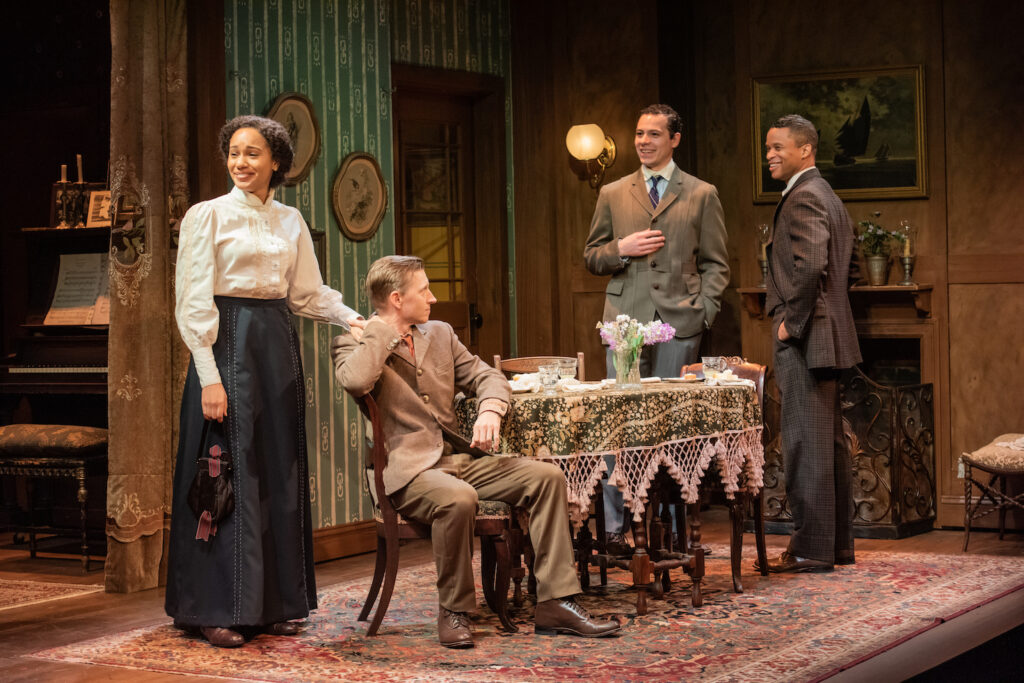
Things get rolling dramatically when Charley, at first skeptical about the idea, begins to see its promise, and soon proposes to follow in Fred’s wake, even though emigrating will mean giving up his own job—whose salary has just been reduced anyway—and leaving Lily until he’s settled and can send for her.
Maggie’s domestic comfort would be assured if she married Walter. Her several iterations of what she’d do if she were a man reveal a proto-feminist awareness of women’s limitations. So she’s the only one who sees the promise in what Charley—free to act because he’s a man—is willing to risk to find the freedom England denies him. Baker, though, has something else in mind for Charley and Lily’s future.
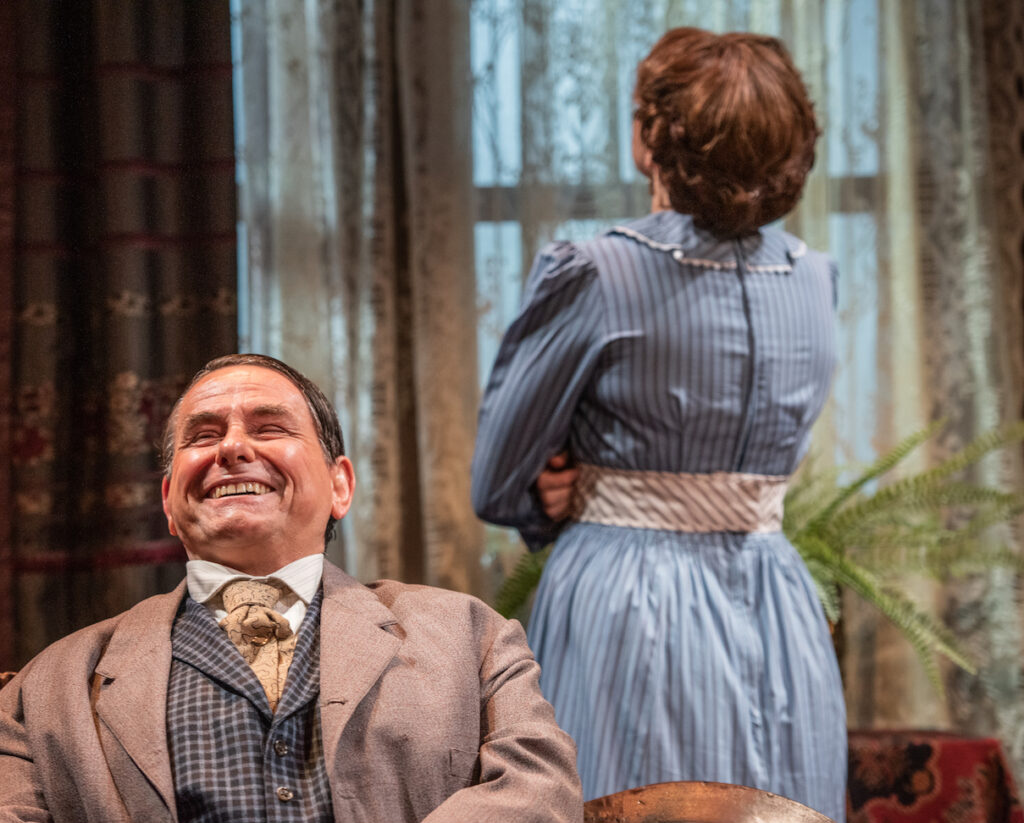
Chains works as an inside look at daily life in an Edwardian lower-middle-class home, where people spend their free time pottering in pea patches, singing songs around the piano, reading the papers, smoking pipes, and resorting to whispering or various verbal subterfuges to avoid mentioning anything remotely related to sex. It’s a tale well told, with barely any distractions from its central thesis about the need sometimes to break the chains of steely social convention. Not the most challenging issue on the docket, but certainly a universal one.
Under Jenn Thompson’s intelligent direction, the British-accented performances are mostly sturdy, but none are especially inspiring. Several, like Ms. Gilliatt’s spunky Maggie, Mr. Owens’s robust Leslie, Anthony Cochrane’s uncomfortable Mr. Massey, and Ms. White’s matriarchal Mrs. Massey, are suitably colorful. The cast, it might be noted, despite the realism of the writing, direction, and acting, is a mixed-race one, even for the same family. This, of course, is now increasingly common, which is not to deny that one doesn’t sometimes ponder ways to justify the anachronisms, just as would be the case if a radio was visible in The Wilson’s living room. It’s hard not to wonder, for example, why Fred, played by a man of color, would think he’d be better off in 1909 Australia, with its racist past, than in England, or why no one, in their wish to dissuade him, would raise the issue.
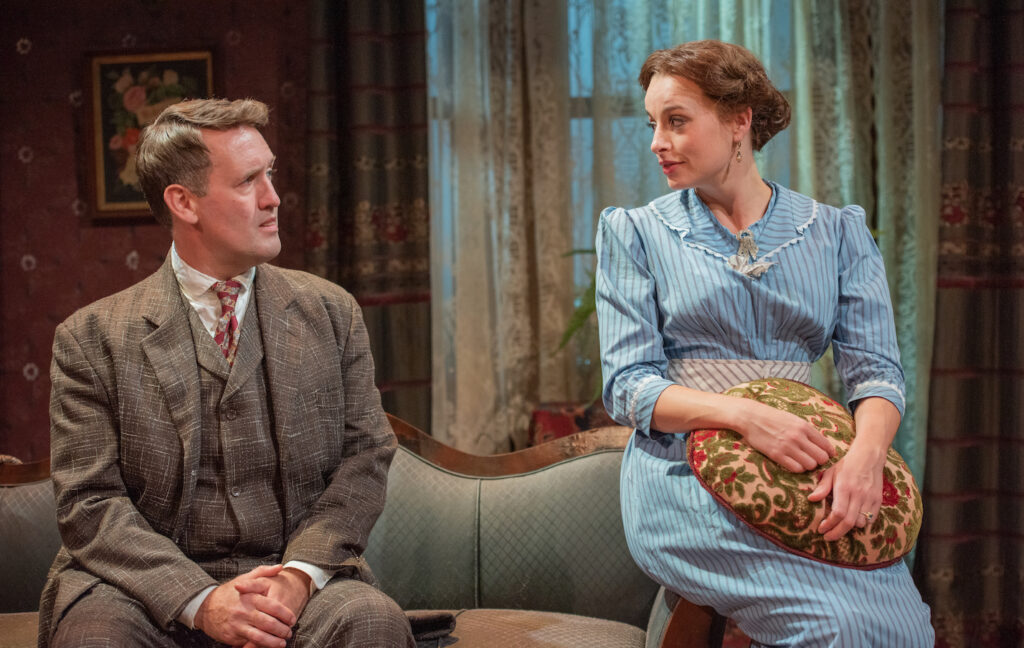
What steals the show are the scene shifts for John McDermott’s two sets, one showing the dowdy, realistically endowed interior of Charley and Lily’s home, the other the somewhat more upgraded Massey home. Instead of shifting the first set during the intermission, Ms. Thompson waits for the second act to begin so that, using the well-choreographed ensemble, she can show the remarkably clever way Mr. McDermott has contrived for one set to transform into the other, a feat reversed later in the action. Supplementing Mr. McDermott’s period-appropriate sets are the equally apt costumes of David Toser, the well-modulated lighting of Paul Miller, and the sound design of M. Florian Staab.
Chains, the program informs us, was called by a critic at its opening, “at once the most brilliant and the deepest problem play by a modern British writer that I have seen since Major Barbara.” Shaw’s play has been produced countless times since it was premiered in 1905. Chains? Not so much. As a well-crafted curio, it may still make for a reasonably engrossing evening in the theater, but it’s a far cry from Major Barbara.
Chains. Through July 23 at Theatre Row (410 West 42nd Street, between Ninth and Tenth Avenues). www.bfany.org/theatre-row
Photos: Todd Cerveris


